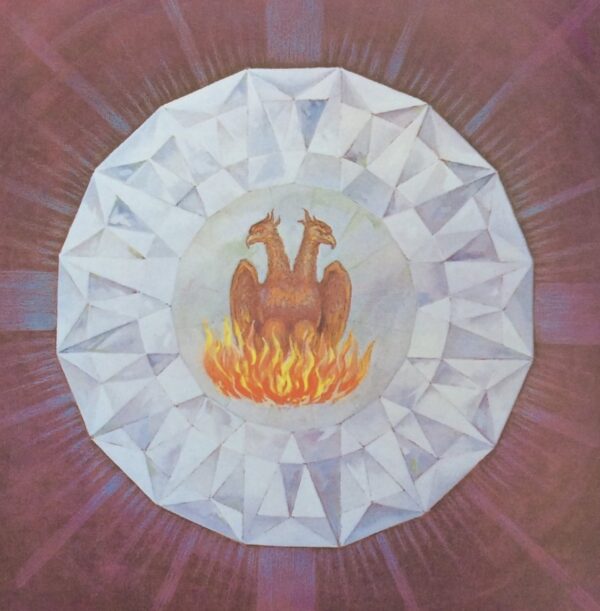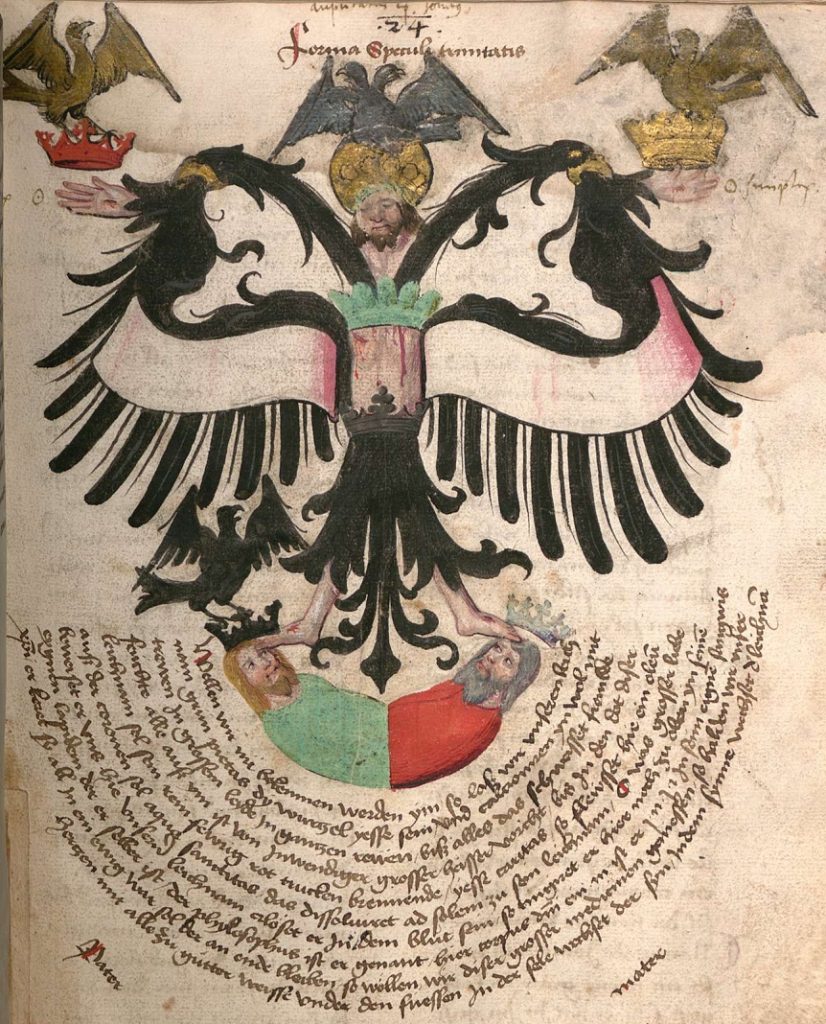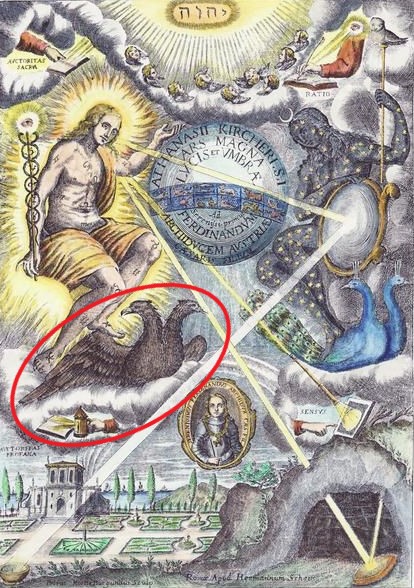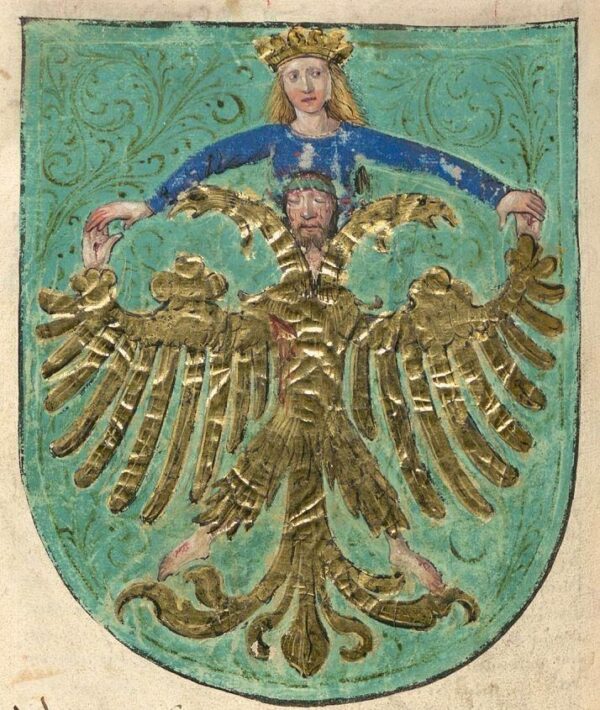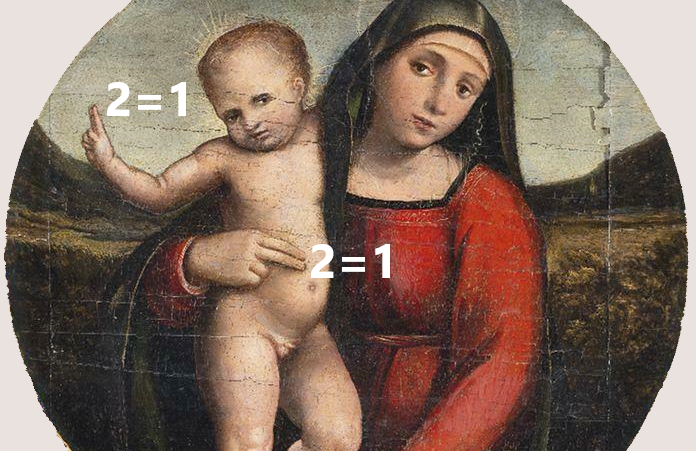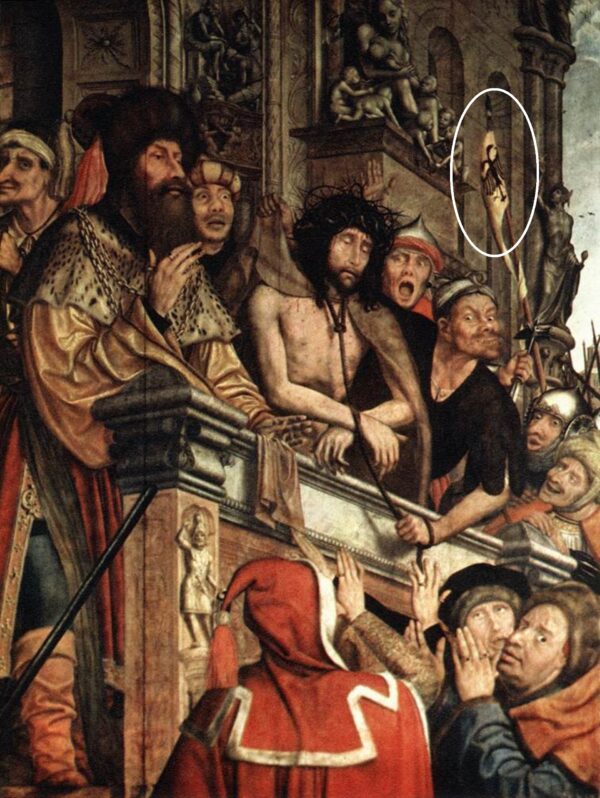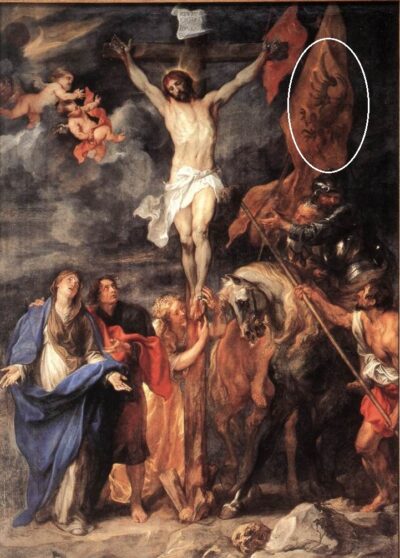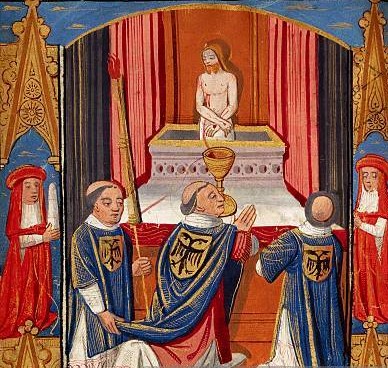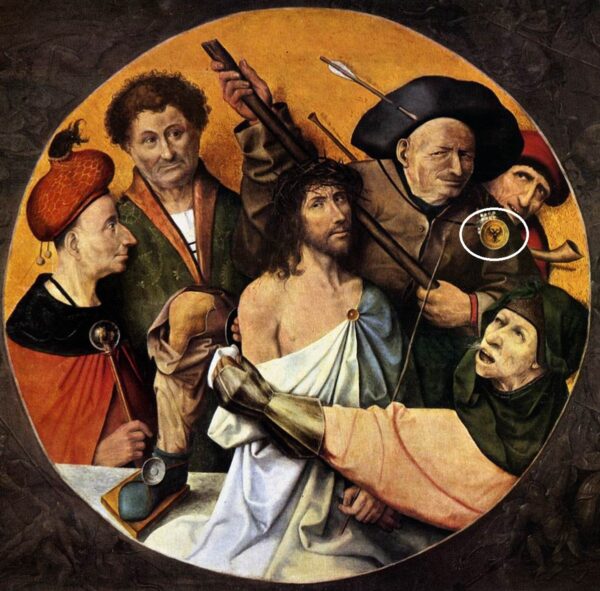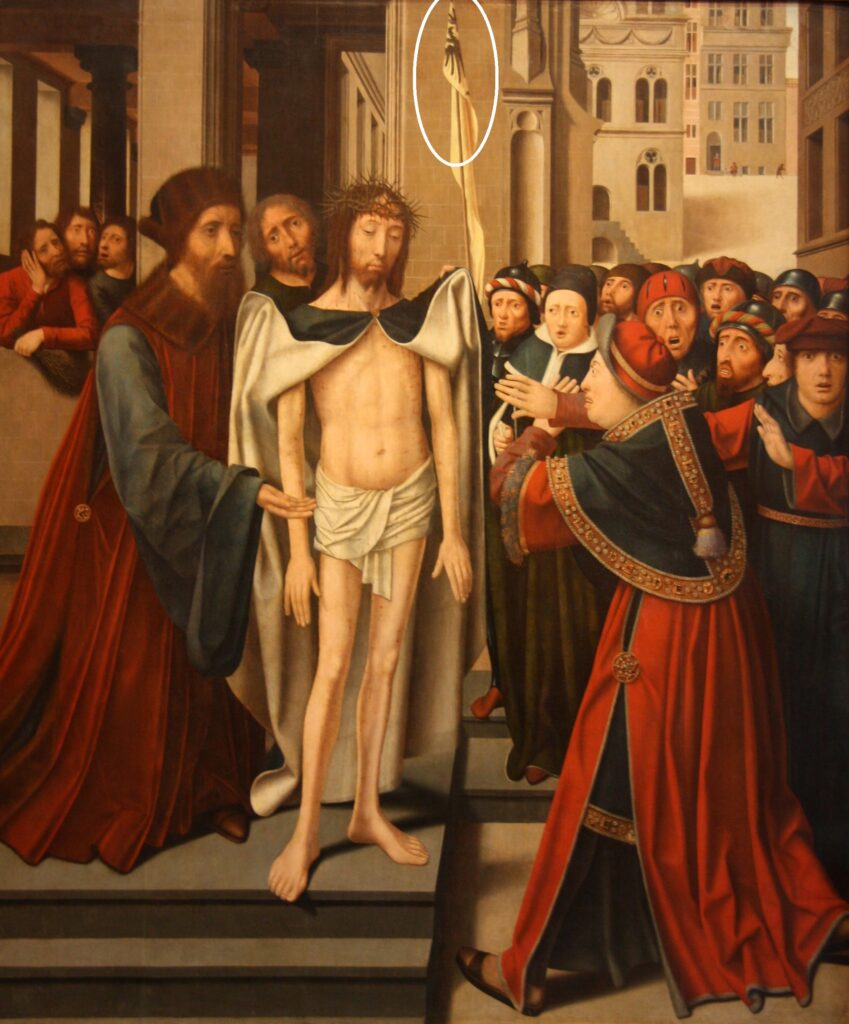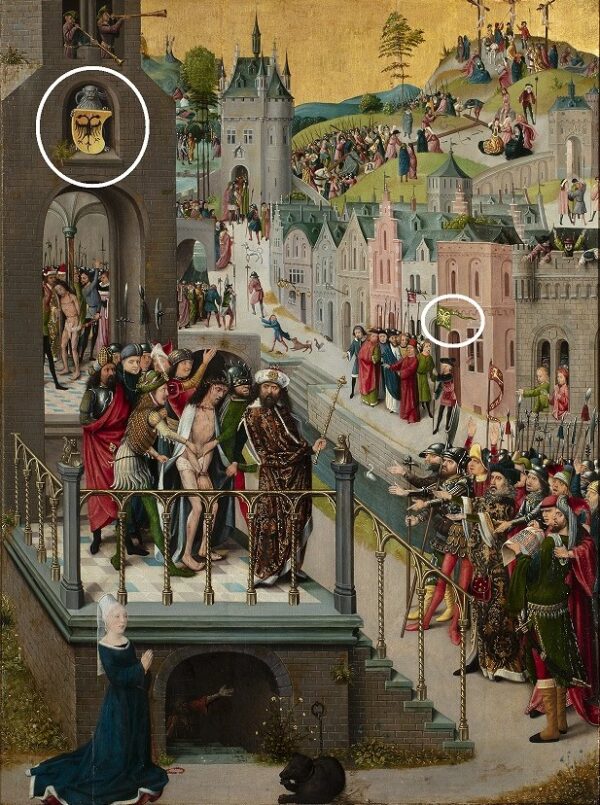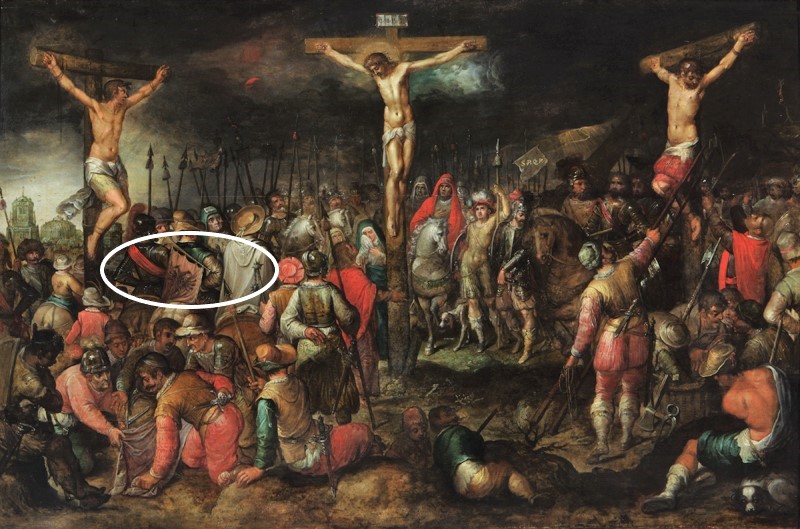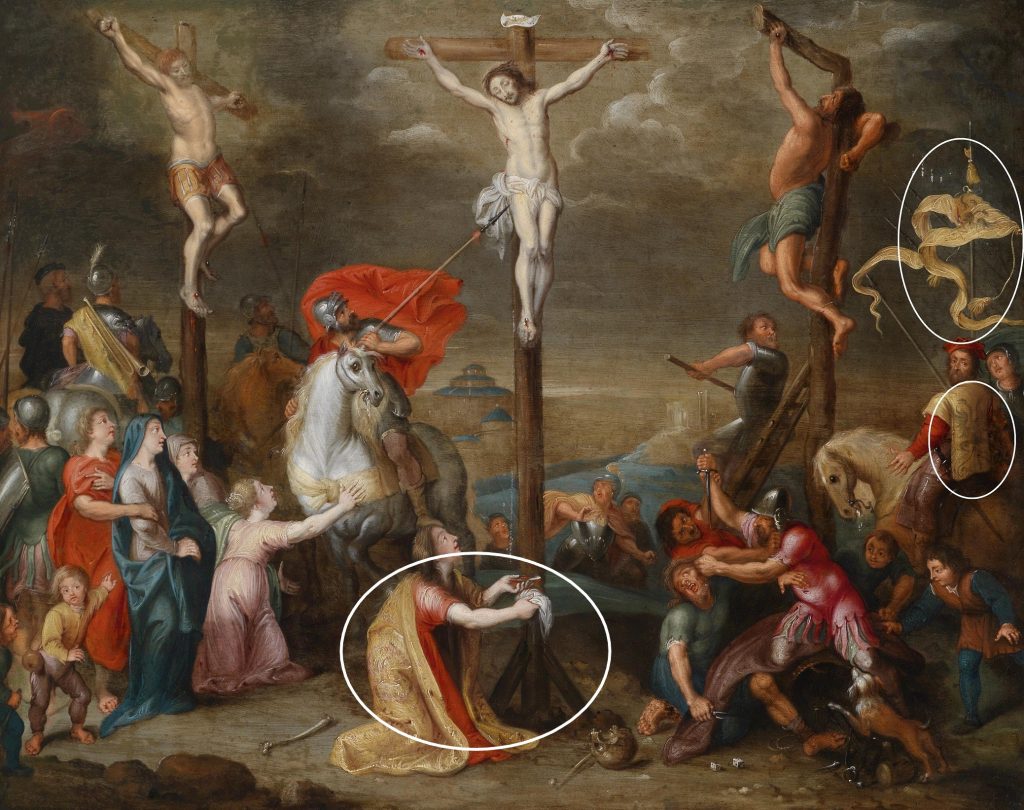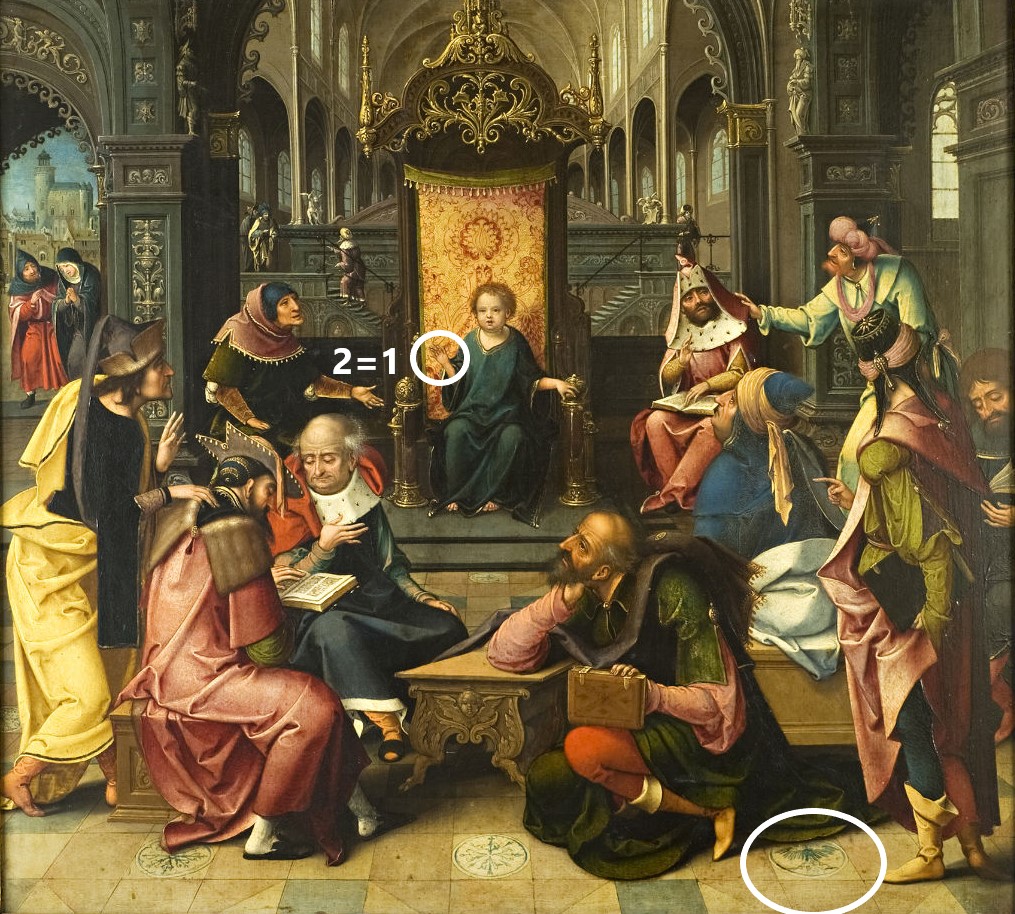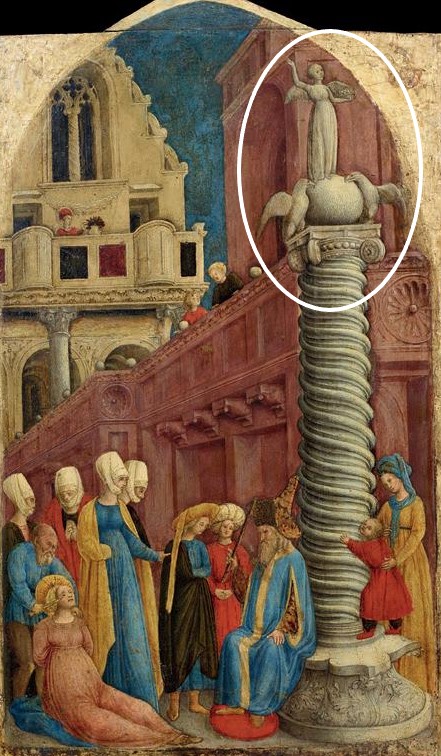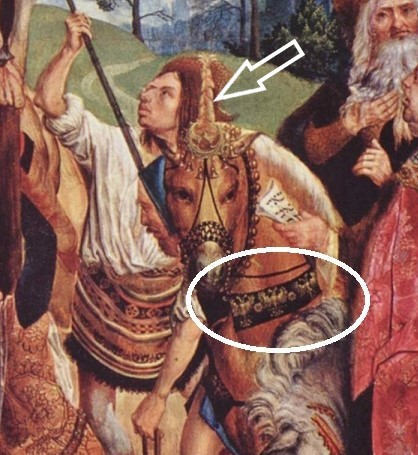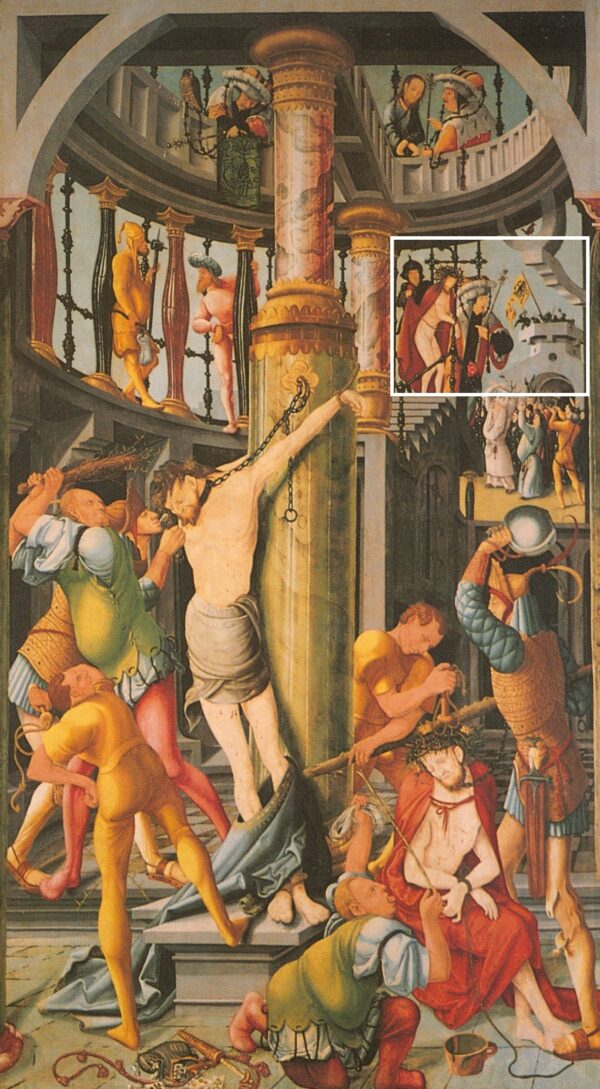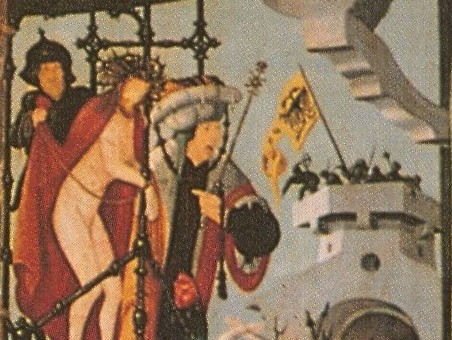Alchemy
CLICK ON THE IMAGES FOR AN ENLARGEMENT
The DOUBLE-HEADED EAGLE is an ancient symbol, which we can find in multiple cultures and spiritual traditions, and that represents God-realization. An eagle symbolizes the victory of spirit over matter. The two heads represent duality, which has fused into (divine) oneness.
In alchemy, the DOUBLE-HEADED EAGLE represents the alchemist’s completed Magnum Opus (process of God-realization). Some of the alchemical emblems below show a link between the Magnum Opus and Christ.
Examples from Christian art
CLICK ON THE IMAGES FOR AN ENLARGEMENT
Throughout the ages there have always been initiates, artists and mystics who knew that Jesus was not born as ‘the Son of God’, but had experienced a kundalini awakening, after which he was one with his Divine Father. The Gospel writers have hidden this spiritual truth in their texts in inventive ways, including the use of imagery and wordplay (see my books). Because of the rigid attitude of the church, the truth could not be spoken aloud, but underground, through esoteric groups such as the Freemasons, it found its way onto the canvas.
It was relatively easy for artists to use the esoteric symbol of the DOUBLE-HEADED EAGLE in their work, because in the time of Jesus the eagle was the symbol of Roman occupier (see right). Apparently the patrons of the paintings below – usually the church – did not realize that the Roman eagle had only one head!
THE SIGN OF THE SACRED MARRIAGE (two fingers together: 2=1) is incorporated in many paintings, in one form or another, often in combination with other esoteric symbolism. This hand gesture refers to a fusion of the polar energies/duality, and with this to a process of kundalini awakening.
Tiziano Vecellio (Titian), 1544, Palazzo ducale di Urbino. Read about the RESURRECTION and the KUNDALINI in my book “Mary Magdalene, the disciple whom Jesus loved.”
Quinten Massijs
Quentin Massijs, circa 1510-15, Rijksmuseum
Anthony van Dyck, 1630.
St Gregory’s Five Sermons, miniature from the Book of Hours (Poitiers), late 15th century.
The apostle John cooked in oil,
Frans Francken de Oude (attr. to).
Hieronymus Bosch
Master Morrison, 1510.
Michele da Verona. The SCORPION (click here) is also a symbol for a kundalini awakening. A CIRCLE and a SQUARE refers to ‘SQUARING THE CIRCLE’ (click here), an alchemy metaphor for the MAGNUM OPUS (read: a completed kundalini process)
Anonymous, 15th century.
Hieronymus Francken de Oudere. The colors BLACK, WHITE, YELLOW AND RED represent the four phases of the MAGNUM OPUS (click here) of the alchemist.
Pieter Brueghel de Jongere
Simon de Vos. The colors BLACK, WHITE, YELLOW AND RED represent the four phases of the MAGNUM OPUS (click here) of the alchemist.
The Emmaus disciples, Tiziano Vecellio (Titian).
Christ Disputing with the Doctors, Bernard van Orley, 1st half 16e century. The pattern on the CANVAS behind Jesus refers to the PINEAL GLAND (click here).
Noord-Nederlandse School, circa 1475.
Saint Apollonia made blind, Giovanni d’Alemagna, 1445. The spiraling PILLAR (click here) is a symbol for the awakened spine. The WOMAN WITH WINGS, on top of the pillar, is the divine SOPHIA/the kundalini-shakti. See the illustration from alchemy on the right.
The Aachen Passion Altar, 1510.
Read more on the symbolism in the crucifixion story in my book “Mary Magdalene, the disciple whom Jesus loved.”
Jorg Ratgeb Herrenberger. De GESELING (klik hier) van Jezus is een metafoor voor de ZUIVERENDE werking van de kundalini-energie.


